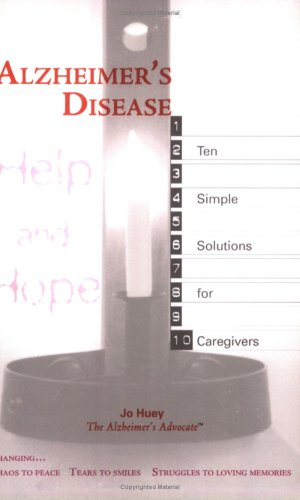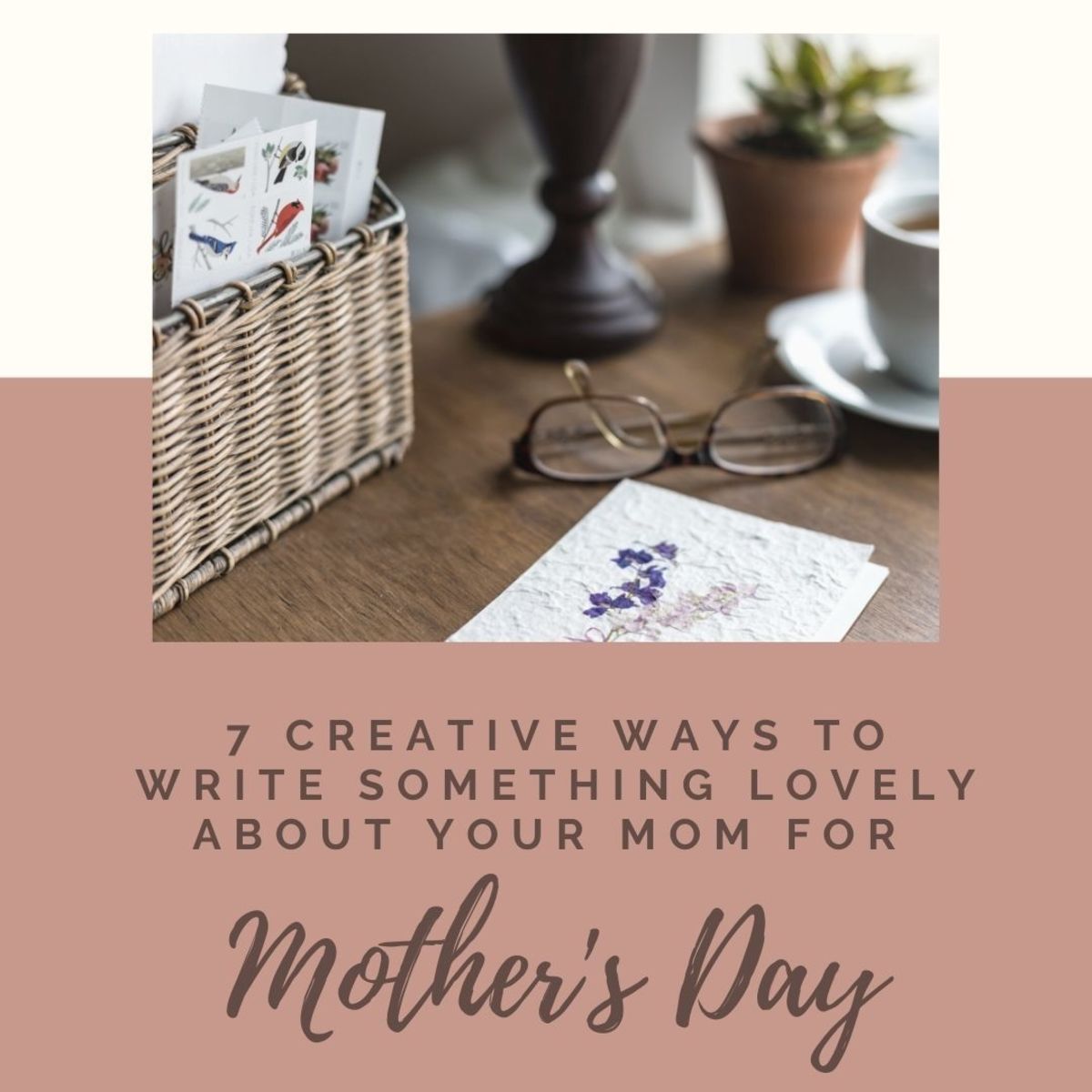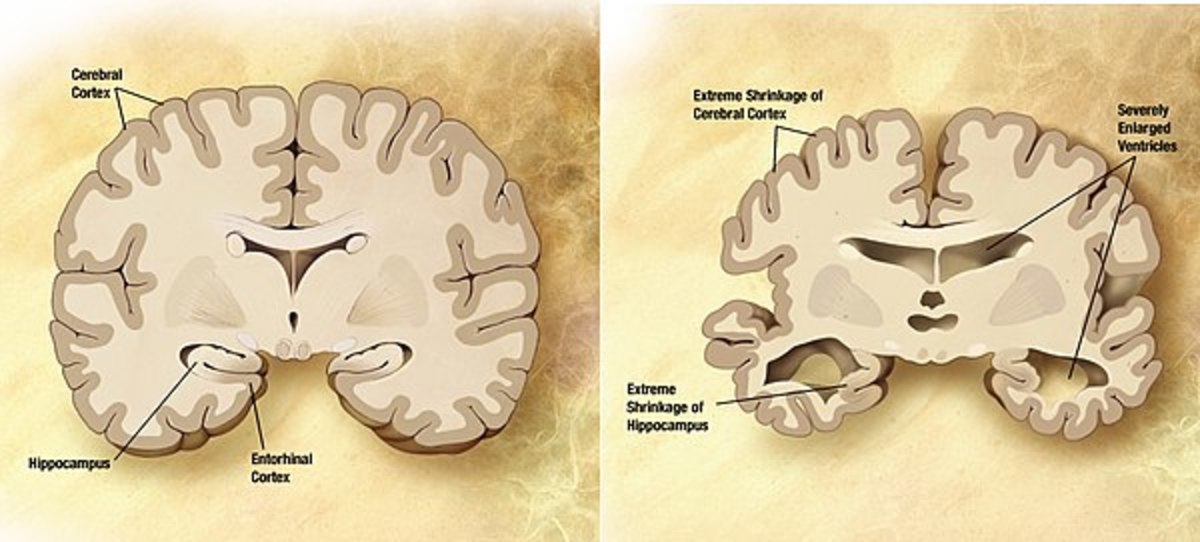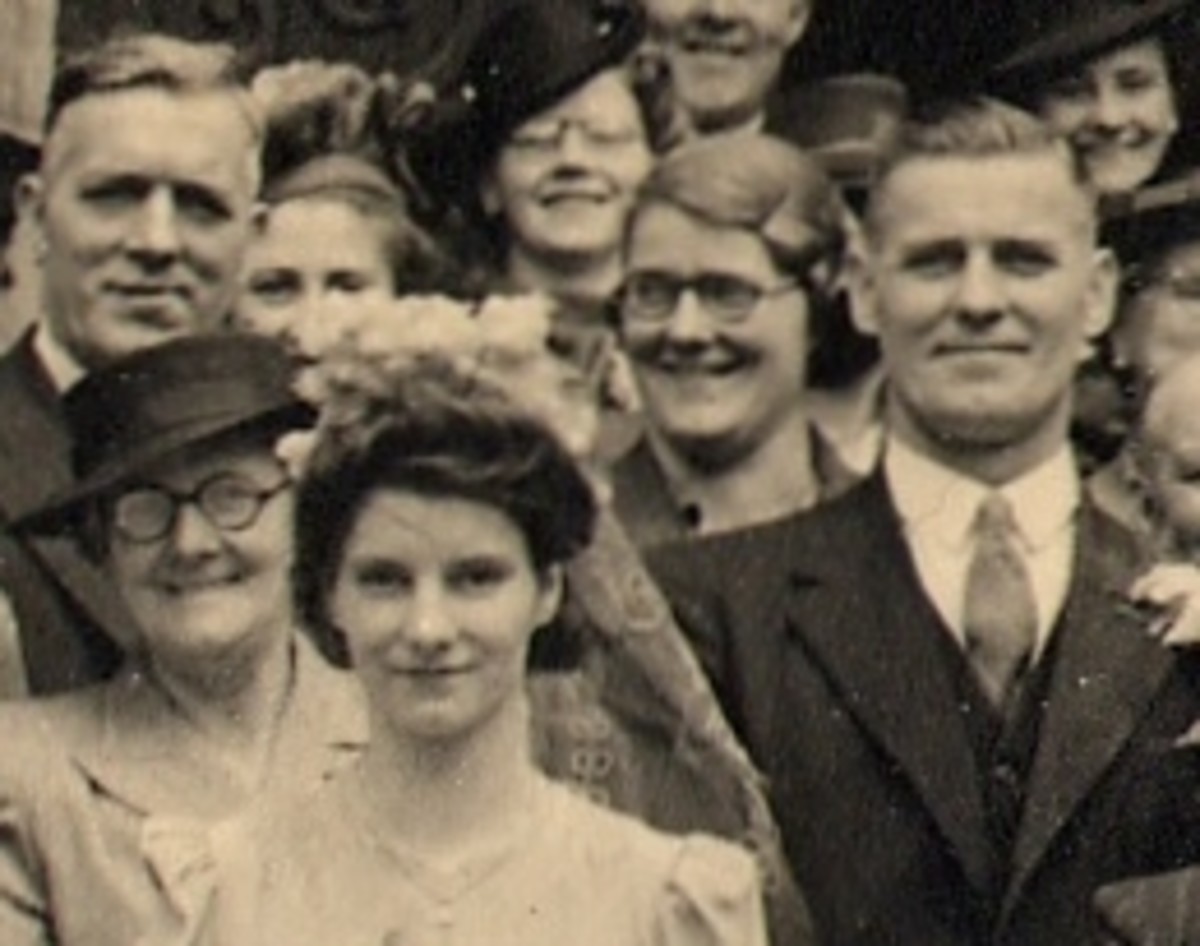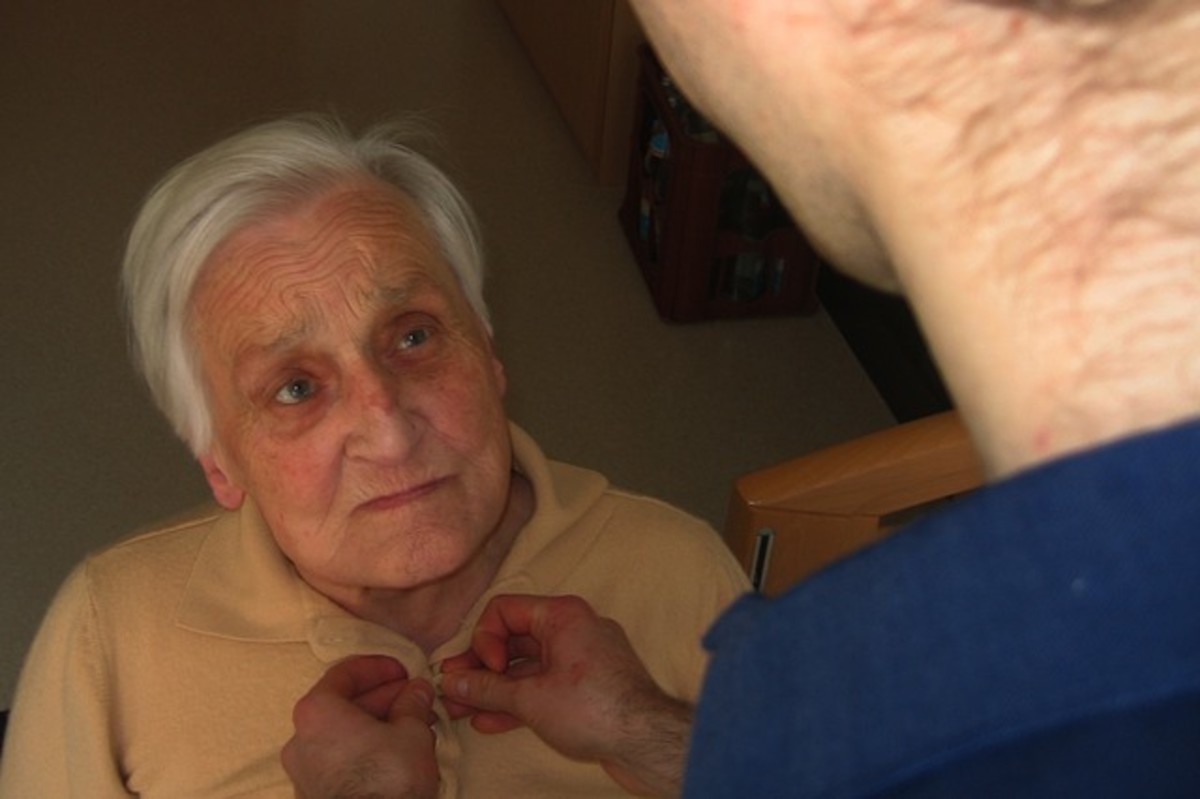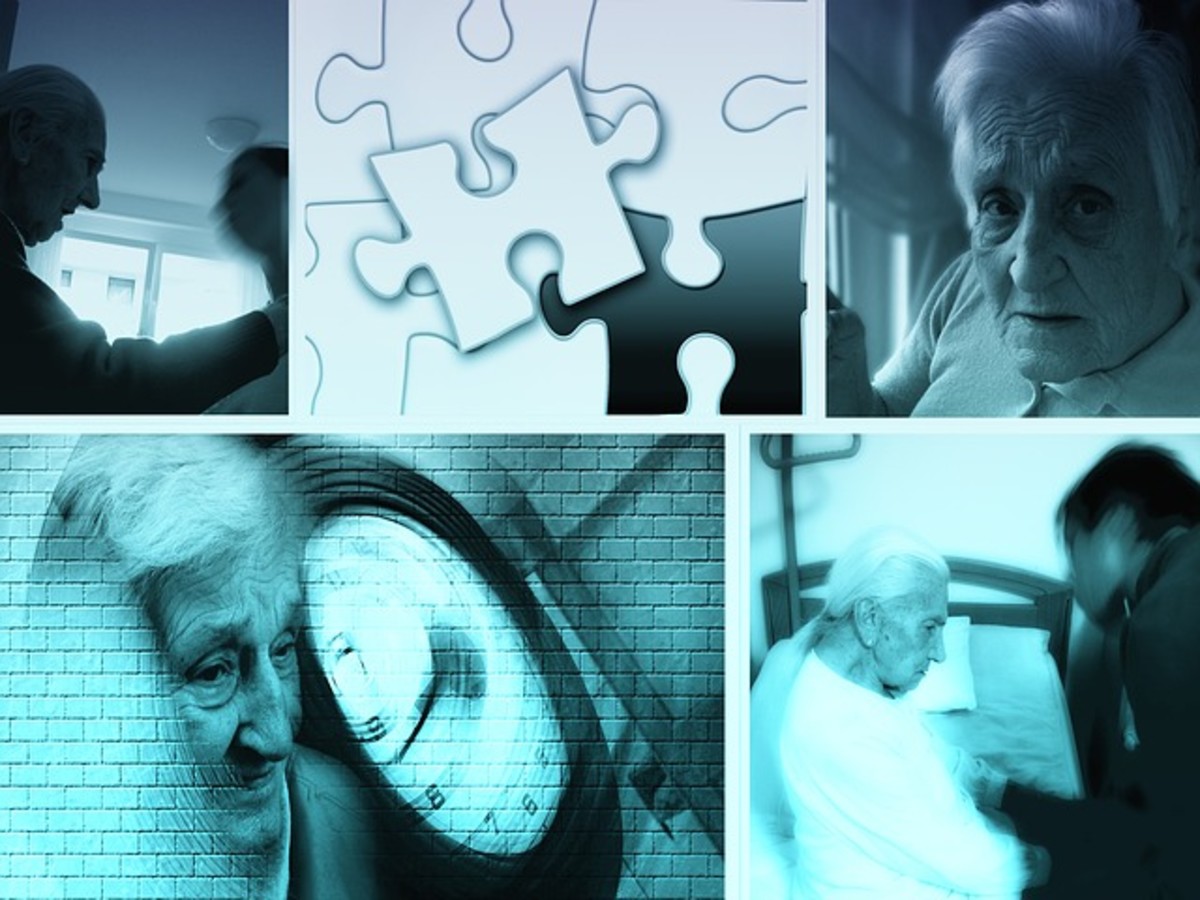Alzheimer's Disease - Love Doesn't Ease The Pain
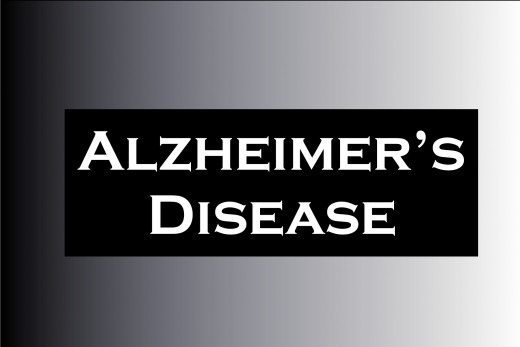
Writing through tears isn’t easy. Sharing your most personal feelings is even harder. But there comes a time when you have to turn your pain into something positive and that is what this is all about. You write because you don’t know what else to do and you hope, and pray, that something you write will help someone else.
This is about Alzheimer’s disease, a cruel and destructive disease that can tear even the best relationships into shreds. It takes courage and discipline and patience and love doesn’t ease the pain.
- Alzheimer's Dementia - How To Avoid Getting Arrested
Alzheimer's dementia can create legal issues for your family. Learn what you can do to prevent your loved one from getting arrested and, how you can prevent Alzheimer's from robbing your family of your dignity and resources.
A Must Read Book
Some things are easy to share
There are some aspects of Alzheimer’s that have simple solutions and it’s easy to write about them. It’s easy to suggest that you develop a routine in your household because routines are necessary for someone who has Alzheimer’s. Offering tips on grooming or personal hygiene are things that can be written about without emotional attachment. It is easy to write about the day that you had to take the driving privilege away from your Mom or Dad. Yes, some things are easy to write about. But not this one. Not today.
How do you write about the day you called to check on your parents and found them screaming angry insults at each other? How do you tell the world that you are scared that one of them is going to become physically violent and someone is going to get hurt? I guess you just sit down at the keyboard and let it flow because there is no where else for these emotions to go. It’s a feeling of desperation that I’ve never known before.
We Love But We Struggle Too
My parents love each other and for the first 60 years of their marriage, I never heard them have a disagreement. Three years ago my Dad was diagnosed with Alzheimer’s disease. His only symptoms were short term memory loss and repeating himself a lot. Medication slowed the progression of his disease and and we found ways to help keep some of the memories alive. For two years, things were okay. Our family learned to cope.
In the last six months, things have gone downhill fast. The medications are no longer working and Dad is showing signs of slipping into the final stages of Alzheimer’s. He has trouble speaking, chokes easily, and is content to just sit. He has lost interest in everything except his family. He has become very emotional and is quick to tell you he loves you and quick to cry over almost nothing. He follows my Mom from room to room now. She is his security; the place he feels safe, and he wants to be with her every minute of the day. It drives her nuts.
Mom is handicapped by a stroke. She isn’t stable on her feet and cannot do many of the things that used to bring her so much joy. Since her stroke 13 years ago, Dad has done everything that she could not do and he has done it without the first complaint. But the stroke took many things from my mother and one of them is her ability to rationalize my Dad’s Alzheimer’s. He still looks like her husband and she can’t accept or understand that the man she knew has slipped away. He is hidden behind a cloud; a kaleidoscope of memories that don’t fit together or make sense to him. It is a constant struggle for him as he tries to sort the images in his mind. The stroke also stole my Mom’s inhibition. She speaks before she thinks. And then, it’s too late.
- Alzheimer's Disease - Coping When The Fire Starts To...
There comes a time when you start to see the fire begin to fade in your loved one who has Alzheimer's disease. There are ways of coping but the most important of all is knowing you are not alone. It is a journey that we must share; to help others and
Good Days and Bad Ones Too
Family gatherings have become difficult. For a family who knew nothing but love and patience with each other, this new dynamic is painful. It hurts deeply to see Mom be critical of my Dad in front of the rest of us. And it hurts to see how his self-esteem has suffered. If there is one thing I know about this disease, it is that praise goes a long, long way. People with Alzheimer’s need positive reinforcement and they need a lot of it. The reward for it is immeasurable, both for the person with the disease and their family. And, the penalty for not providing that positive reinforcement is just as significant. A person who is living in the Alzheimer World of clouds and shadows will react if they feel threatened or belittled. Even the most friendly dog will bite if it feels threatened. It is our basic instinct and Alzheimer’s does not take that away.
There are no 50 shades of gray to Alzheimer’s disease. There are simply good days and bad days. It’s black or it’s white. The good days are wonderfully good and the bad days are tragically bad. The problems may differ but the overall picture is either good or bad, black or white.
From Amazon
A Very Bad Day
Today, is a bad day; a black day. I’m scared. I’m scared that the two people who taught me about love and respect, about tolerance and patience, and, about compassion are going to hurt each other. And I know that neither of them could live with themselves if that happens.
These emotions that have been unleashed stem from what was supposed to be a simple “checking in on you” phone call. On the days when I don’t visit, I call. It’s my routine and they have come to expect it. Today, I dialed the number and I waited. The phone rang longer than usual and when my Dad answered, I heard it in his voice. He was agitated; more agitated than I’ve ever heard before. In the background, I heard my Mom sobbing. My heart sank and the flag of a bad day rose. But this was different. It gave me goosebumps and for a moment, I couldn’t get my breath. When I started to speak, Dad rudely interrupted me with a remark that is totally out of character. Then Mom screamed at him and he responded with another rude remark directed at her. The conversation went from bad to worse.
For a few minutes I sat on my end of the phone listening to a heated argument with Dad challenging Mom and Mom screaming back at him through sobs. I have never felt more helpless. Here I am, several miles away and two people I love most are viciously attacking each other with words. And, it is escalating. My logical brain tells me that if something doesn’t change, someone is going to get hurt. I begin pleading with Dad to leave the room; to go to the den and watch TV, leaving Mom alone for a while. He snaps at me again but finally agrees to go. Mom refuses to talk to me so I tell Dad to hang up the telephone and just go to the den.
Before I can catch my breath again, my brother calls. Dad has called him to come and intervene on his behalf. This is a good thing as my brother is a calming influence on them both.
While writing this, my brother has called to say that things are okay now. He was able to calm the storm and is on his way home.
No, Love Doesn't Ease The Pain
So, why have I written about this very personal moment? Because, if you have a loved one with Alzheimer’s, this can happen to you. It is my hope that in sharing my story, you will have time to prepare for the personality changes that this disease can inflict. It is my hope that you will enlist the help of professionals before the time comes when you need them. Our family has a team of professionals on board and tomorrow, we will discuss with them if it is time to make changes in my Mom and Dad’s living arrangements. If they cannot control their emotions and safety has become an issue, then it may be time for us to move them to a more controlled environment. As hard as that may be, it will be worth the peace of mind. Neither my Mom nor my Dad could live with the idea that one of them hurt the other. This man who looks like my Dad is not the same man I knew. He is my “other Dad” and we don’t know him very well. We don’t know what he is capable of and so we have to be proactive and prevent a real crisis. Will this be painful? Yes, it will be but so will the consequence of doing nothing.
There comes a time when a family must make very difficult decisions in the name of safety and logic. Alzheimer’s disease forces your hand and always before you are really ready. Love doesn’t ease the pain of difficult decisions. I don’t know if you are ever really prepared but today is proof that you have to be willing; willing to trust the professionals. Maybe tomorrow will be a good day and we can process today appropriately.
© 2013 Linda Crist, All rights reserved.


